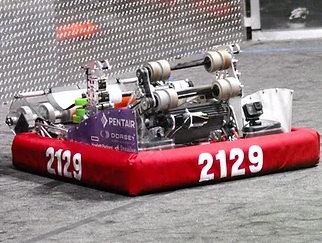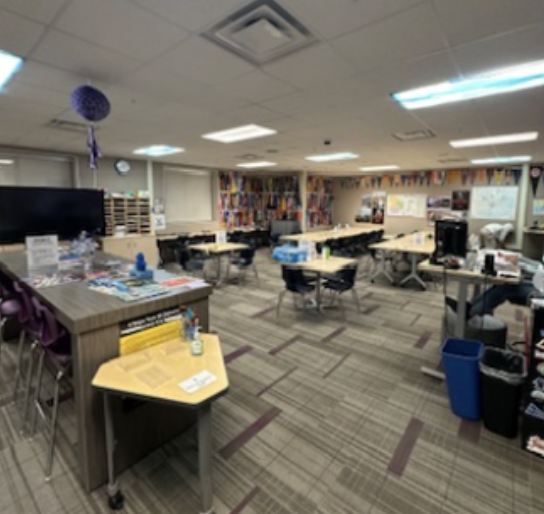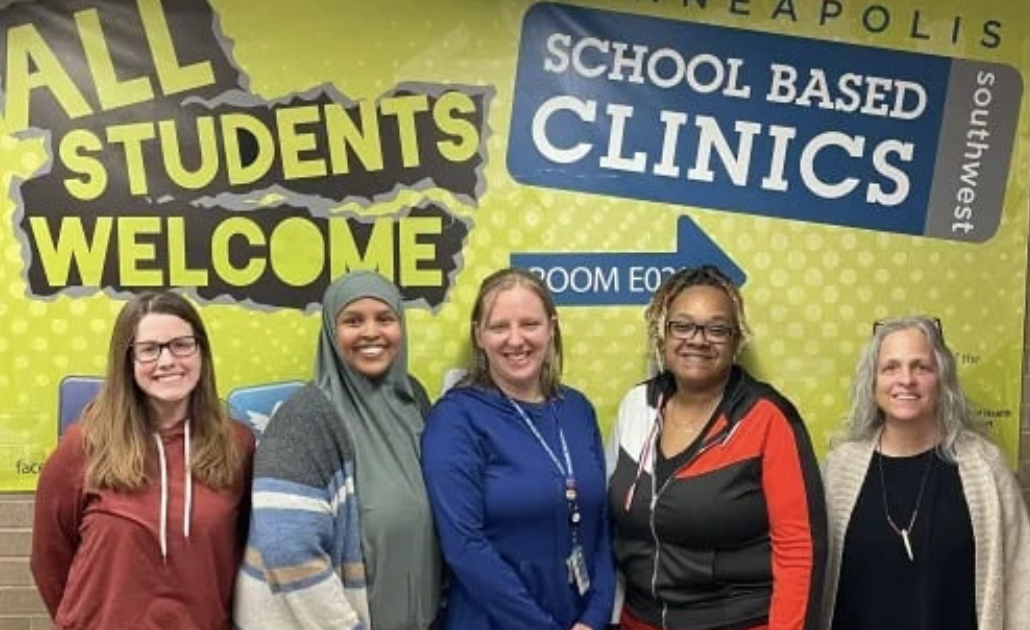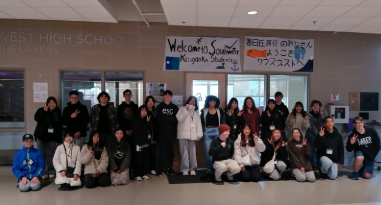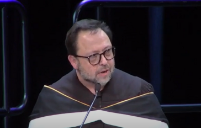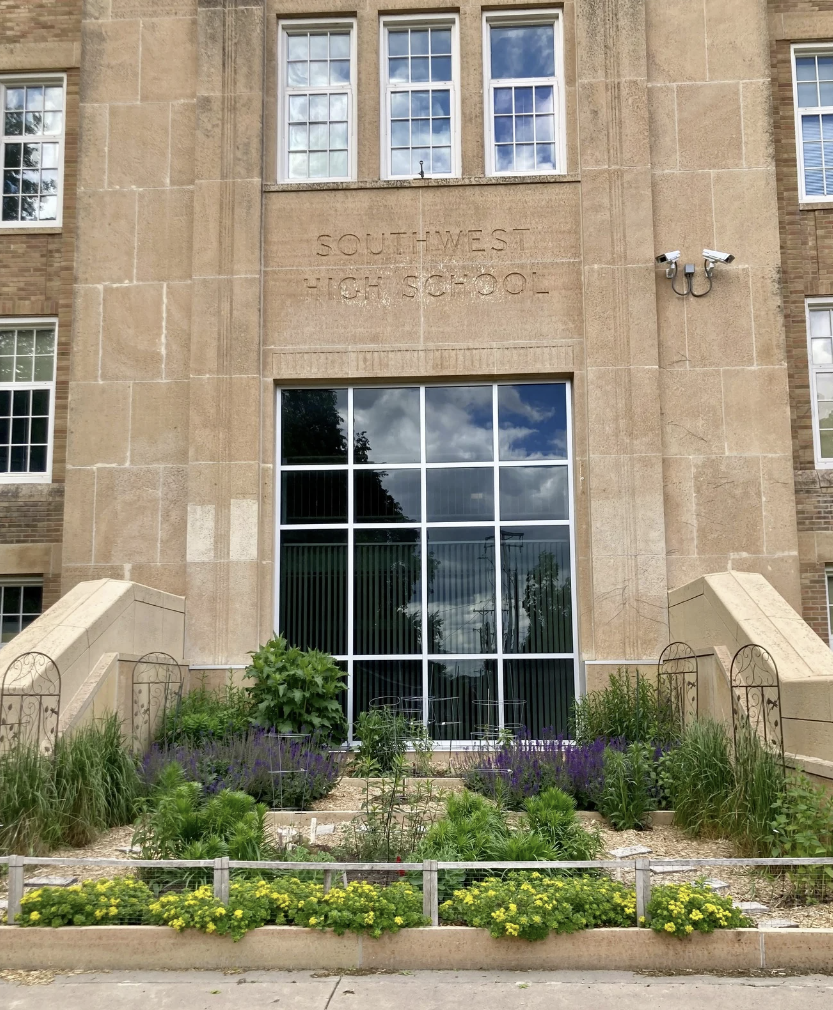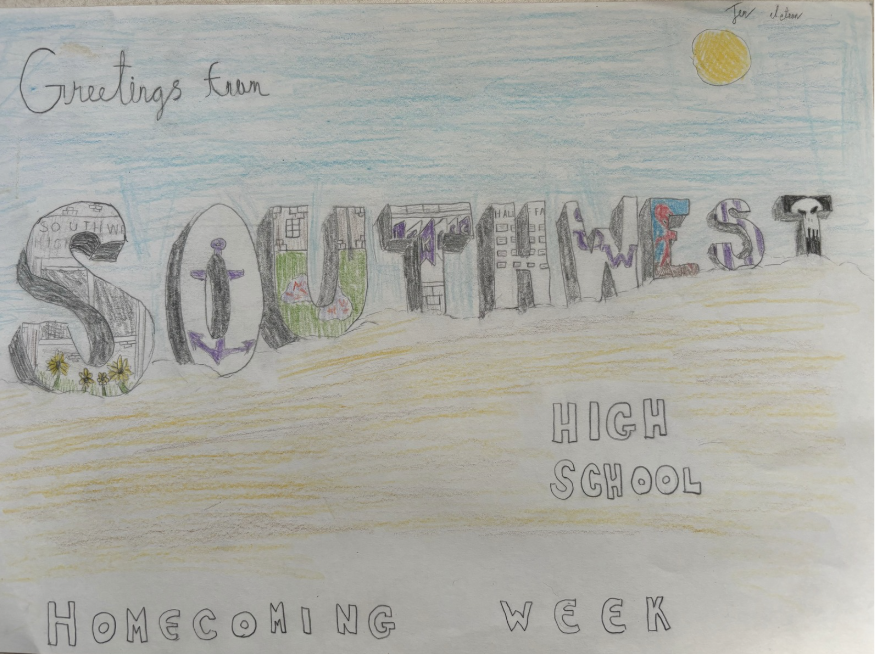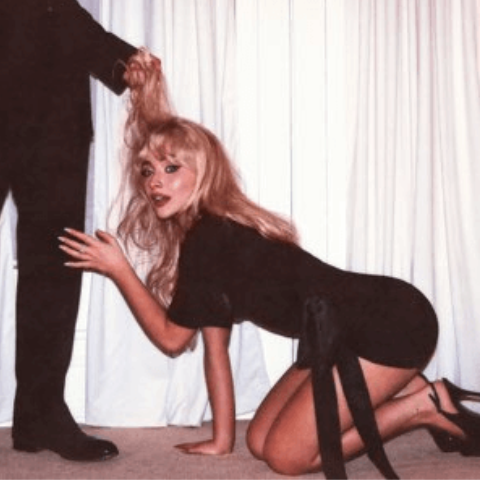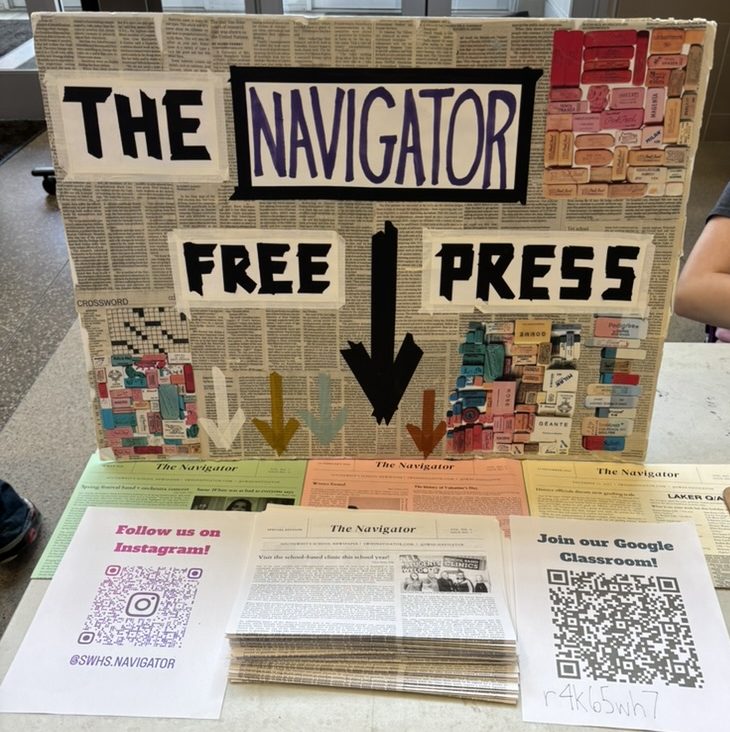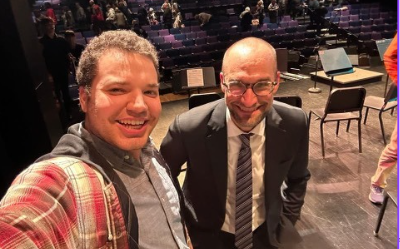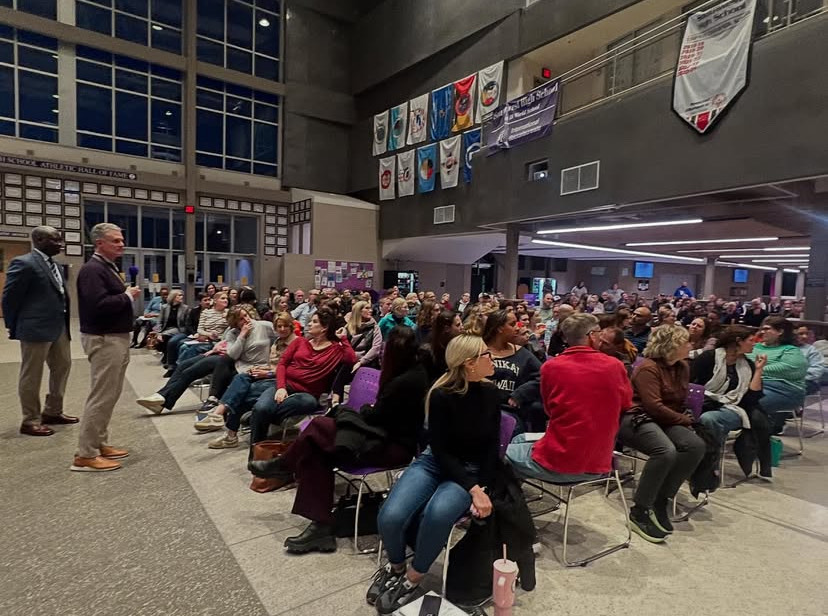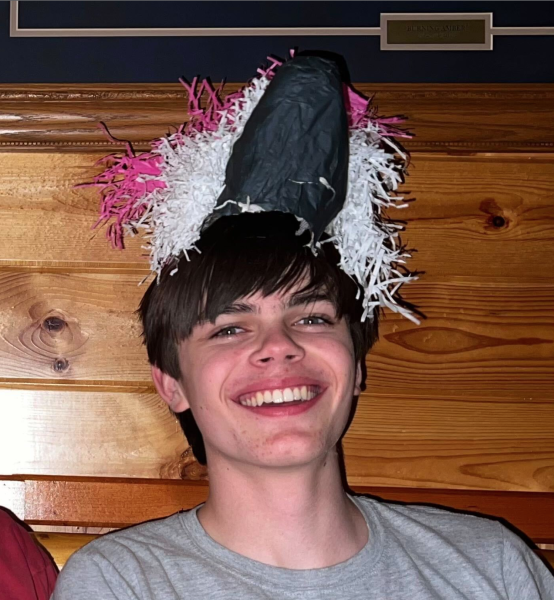The Southwest High School Robotics Team, Ultraviolet, with team number 2129, brought three trophies home from their regional competition in Duluth, Minn. The Northern Lights Regional lasted three days, from February 29 to March 2.
In 83 qualification matches for 55 teams, Ultraviolet competed in nine matches. Each match lasts about three minutes and is a competition between two alliances of three randomly selected teams, with six robots competing per match. At the end of the qualifications, Southwest’s team ranked 13th. Ultraviolet was chosen for a fixed alliance for the playoffs by the alliance captain, the team from Great River and Avalon Schools, and competed with the team from Kasson, Minn. All in all, Ultraviolet and its robot “Chester” went 9-5-0. In a playoff double-elimination bracket, Ultraviolet was in the upper bracket (undefeated) alliance until the finals, when the alliance was defeated. Ultraviolet came back to Minneapolis with a finalist trophy.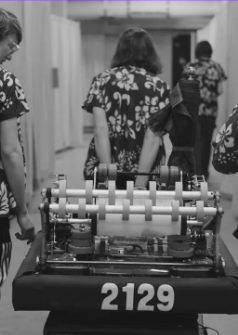
Ultraviolet’s head mentor/coach, Tim Dirr, got much-deserved recognition for his many years of volunteering for the team. Minnesotan judges from STEM fields read numerous essays about mentor excellence from students of many of the 55 teams and decided that Dirr was the most deserving of the Woodie Flowers award. This award is the highest honor for an adult mentor, named after one of the founders of the robotics organization, FIRST.
Southwest Robotics’ final award was the Quality Award, which “celebrates machine robustness in concept and fabrication.” The robot, Chester, named for its orange-crusted flywheels, is fully designed in CAD and made out of aluminum and polycarbonate, with a low center of gravity, powerful driving wheels, and custom milled on a CNC machine. Dual climber mechanisms pull the robot off the ground with two Dyneema cords. Its shooting mechanism can autonomously target the goal for scoring foam rings by flinging them into the air. Chester held together remarkably well in a competition involving many 150-pound robots slamming into each other.
The robotics team was quite happy with getting to the final match, but a bit disappointed that they didn’t win it. They have one more regional competition in Lacrosse, Wisc, from April 3 to 6. The robot will likely have another mechanism that helps it score more. It will hopefully be able to shoot into the goal more accurately. Ultraviolet’s autonomous (pre-coded movement at the start of the match) scores an incredible four foam rings in 15 seconds. The 2024 season’s competition robot’s speed and precision are excellent. Ultraviolet is world-class, as the team proved in 2022 when they went to the World Championship in Houston. Chester’s team hopes to get that privilege again in Lacrosse.


